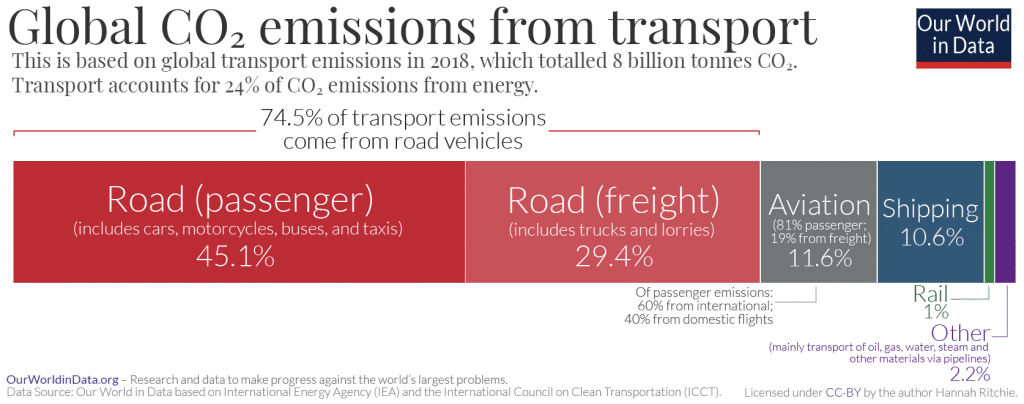Eco-friendly travel is now more important than ever as the climate keeps changing and tourism resumes in a post-pandemic world. Pollution and excess waste are causing harm to the environment, animals, and communities living in tourist hotspots, making it essential to be sustainable whenever you travel. Both casual travellers and full-time nomads can do their part to be eco-friendly as they travel the globe, and by doing so, they can ensure a sustainable future for all.
—
As the global climate deteriorates at an unprecedented pace, there comes a greater need to change how you travel to minimise your impact on the environment. By being sustainable regardless of where you go, you can ensure that you are helping the planet and future generations.
Sustainable Travel Is Part of the Solution
Sustainable travel. That’s when you take the time to think of how every aspect of your journey can be more eco-friendly so you can minimise the impacts your activities have on the environment. Doing so is more important than ever, considering that tourism accounts for 8-10% of greenhouse gas emissions worldwide.
Many modes of transportation necessary for travel, like planes and cars, emit greenhouse gases that negatively impact the environment and also harm human health.


Air pollution is a major concern, as it can affect communities around the entire world, making it more difficult for people to breathe and even increasing the risk of long-term health conditions like cancer. Further, pollution in one location can also travel to other areas of the world, making it a truly global issue. It can also negatively impact entire ecosystems, including plants and wildlife.
When you travel, it is important to be part of the solution rather than contributing to the problem. When you work to travel sustainably, you can help ensure that the places you visit on your adventures stay beautiful and accessible for local communities that inhabit them as well as fellow travellers.


Eco-Friendly Tips During Casual Travel
Whether it is for fun or business, you can take some steps to ensure your travel is as eco-friendly as possible.
It all starts by planning out your journey in advance. If you are driving, plan your route so you are not using gas unnecessarily. Before leaving, determine where you will stay, what you will eat, and the stops you want to make along the way.
In particular, where you eat while travelling can be incredibly important. By eating locally sourced foods, you will consume delicious meals and support local farmers and businesses. What’s more, when you skip the big chain restaurants and stores, you reduce the need for trucks to travel from faraway destinations to deliver supplies to these businesses.
One way to reduce waste and minimise plastic pollution is to avoid single-use plastics. When you go to a restaurant, only order what you intend to eat so you do not need unnecessary takeout containers that will inevitably be thrown away –or bring your own reusable ones. You should also,bring a reusable water bottle and refill it along the way.
Wherever you go, follow one of the primary sustainable travel principles: leave each place the same as you found it. This is especially true when you head out into nature or the wilderness. When you go, you want the area to look as close as possible to how it was when you got there. Do not leave trash lying around or create excess waste. To leave these areas even better than how you found them, pick up any other pieces of trash that others have left behind. These are incredibly simple acts, but they can make a world of difference.
More on the topic: Explainer: What Is Ecotourism and Why It Matters in 2023
Sustainability for Full-Time Travellers
If you travel full-time as a digital nomad or live the van life, sustainability needs to be a primary goal so you can be eco-friendly wherever you go.
There are several tips to consider when travelling by van as a nomad that can help you to be efficient and sustainable. Research each new area you plan to visit before you get there. If there is room in your vehicle, bring your bike along so you can travel shorter distances without further greenhouse gas emissions once you arrive at a destination. Also, do not forget to explore on foot so you can see the sights you would otherwise not notice from a vehicle. If you need inspiration, check out the local natural landmarks and historical sites and work on a nearby park bench.
As you work, try to use energy-efficient laptops and smartphones. You can often identify them by the Energy Star label. Keep your devices charged using solar energy, if possible. Further, whenever possible, do not use an electronic device at all, but instead, write down your ideas on a dry-erase board so you can use it repeatedly.
It can be tempting to continue travelling from place to place but unless you need to be somewhere, remember there is no hurry. When you find a new area to explore, think about how you can stay longer and move less to reduce your fuel consumption. Research campsites or parking areas that are close to the locations you want to visit so you do not have to drive to them. Reduce your waste by using reusable grocery bags and storing food in reusable containers, and do not forget to properly dispose of waste every chance you get.
Conclusion
It is crucial to plan out your travel so you can venture from place to place as sustainably as possible. It’s important for human health, as well as the health of the planet. Do what is right today, and you will set up a promising future for all.
You might also like: How to Live a More Sustainable Life in 2023
Featured image: Unsplash
